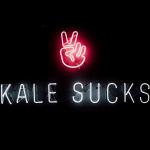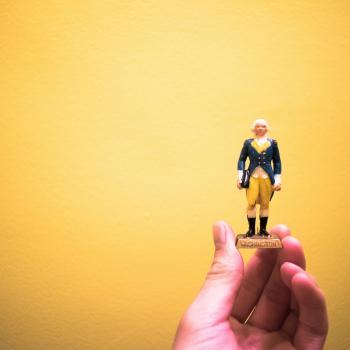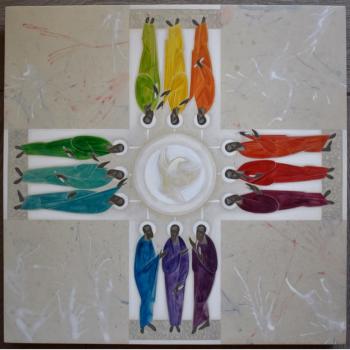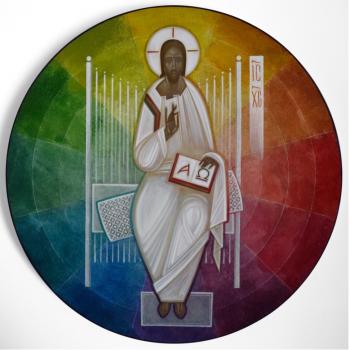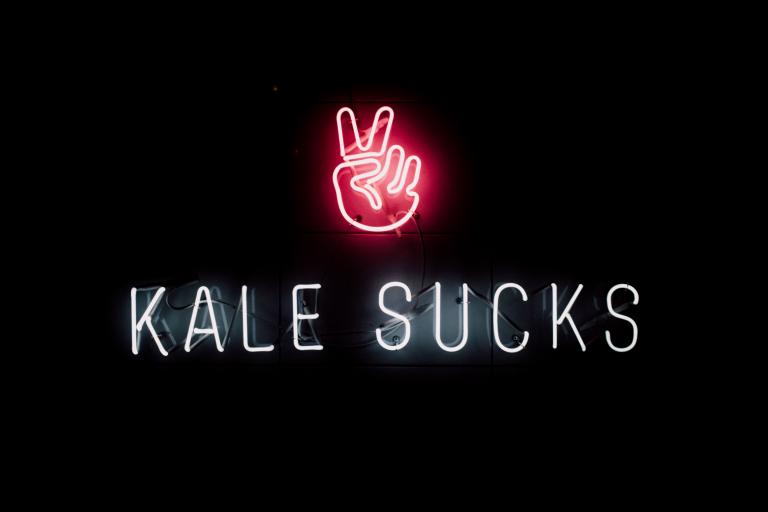
This is Part 3 in a series of posts exploring the question “Should all Christians become vegetarians?”
In Part 1, I tried to lay the foundation for why this question is one that Christians, particularly American Christians, ought to take seriously.
In Part 2, I tried to outline a biblical theology of creation in order to help locate ourselves in the biblical metanarrative. We ended with the observation that the first sinful act – the transgression that led to human death – had to do with consumption.
In the next two parts, I want to explore what the Bible says about eating meat. To do so, we’ll survey what the Scriptures have to say about death before the fall (Part 3) and eating meat before the fall, after the fall, and in the age to come (Part 4).
Was there death before the fall?
The answer is yes and no. It just depends on what kind of death.
Human Death?
No. According to first chapters of Genesis, there was no human death before the fall. Death was a consequence of inappropriate consumption. This was the form disobedience took. Human death does not appear to be baked in to the creation order. While there is no express mention of human beings not dying eventually, the Church has generally understood this to be the case. Death is the consequence of disobedience. When God says, “for in the day you eat of it [the forbidden tree], you shall surely die,” this implies human death is a corruption resulting from sin, not the natural course of life for humans.
Plant Death?
Yes. According to Genesis 1:29-30, God gave plants for food to both humans and animals and this implies death. This ought not be surprising. If you’ve been alive for any amount of time you know full well that life requires death. Unlike human death, this does appear to be a pattern baked into the creation order. As Norman Wirzba points out in Food and Faith, God created a world in which every single living creature needs to eat. Eating is the process by which life is sustained but eating also requires death. “Life as we know it depends on death, needs death,” writes Wirzba. Human death may be the result of evil but this is not the case for plant death.
Animal Death?
Most likely. This is will be our main focus in Part 3. Though it is not mentioned in Genesis 1-2, other “creation accounts” in the Old Testament indicate that animal death was very much a part of things before the fall.
Here are some examples:
First, we’ll look at Psalm 104. This psalm is considered a biblical commentary on Genesis 1-2. The psalmist writes:
19 He made the moon to mark the seasons; the sun knows its time for setting. 20 You make darkness, and it is night, when all the beasts of the forest creep about. 21 The young lions roar for their prey, seeking their food from God. 22 When the sun rises, they steal away and lie down in their dens. 23 Man goes out to his work and to his labor until the evening. (Ps 104:19-23). This suggests God made lions to be lions – animals that devour other animals.
Next we’ll consider a section from Job 38-42. This section of the Scriptures provides a complementary perspective on creation in which the death of animals is mentioned without any blushing. Consider these two passages:
“Can you hunt the prey for the lion, or satisfy the appetite of the young lions, when they crouch in their dens or lie in wait in their thicket? Who provides for the raven its prey, when its young ones cry to God for help, and wander about for lack of food?” (Job 38:39-41)
and
“Is it by your understanding that the hawk soars and spreads his wings toward the south? Is it at your command that the eagle mounts up and makes his nest on high? On the rock he dwells and makes his home, on the rocky crag and stronghold. From there he spies out the prey; his eyes behold it from far away. His young ones suck up blood, and where the slain are, there is he.” (Job 39:26-30)
These passages clearly suggests that God designed the world in such a way that animals were meant to prey on other animals. God created a world in which young lions seek their food – their prey – in a way that was designed by God; God “provides for the raven its prey.” This is part of the goodness of creation, not a result of the fall.
Thomas Aquinas Chimes In
All of this is in keeping with the Great Doctor who argues that the sins of humankind did not change the nature of animals. Thomas writes:
“In the opinion of some, those animals which now are fierce and kill others, would, in that state, have been tame, not only in regard to man, but also in regard to other animals. But this is quite unreasonable.For the nature of animals was not changed by man’s sin, as if those whose nature is now to devour the flesh of others, would then have lived on herbs.” (Summa, First Part, Q 96, Article 1, Reply 2).
That animals ate other animals is one thing, humans eating animals is quite another. This begs the question: did humans eat animals before the fall? The Scripture is not clear on this but I think it is likely. I’ll say more on this in Part 4. For now I’ll simply say this. The main reason most think humans didn’t eat meat before the fall is because God only gives explicit permission to eat plants. I think we should ask why this might be the case. Why does God give explicit permission to eat plants? I think the emphasis in Gen 1:29 on God’s permission to eat plants is explained not because of some unrecorded prohibition against eating animals. Rather, I think it is just as likely, perhaps more likely, that the express permission to eat plants is given in order to highlight the exceptional prohibition against eating from the tree of the knowledge of good and evil. What is forbidden is notthe eating of animals, but the eating of a particular plant.
We’ll consider what the Bible says about humans consuming animal flesh in Part 4.


